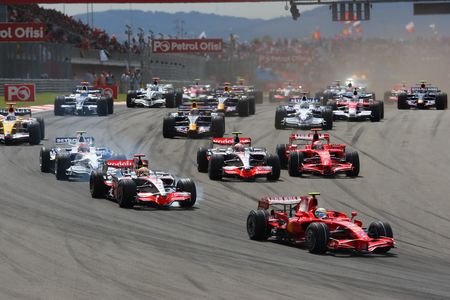Discovery, Liberty Kick Tires on Formula One
The smarter way to stay on top of the multichannel video marketplace. Sign up below.
You are now subscribed
Your newsletter sign-up was successful

About a month after they teamed up to purchase U.K. production company All3Media for nearly $1 billion, Liberty Global and Discovery Communications are reportedly in talks to purchase a 49% stake in international racing icon Formula One.
Liberty Global; its chairman, legendary dealmaker John Malone; and Discovery are talking to Formula One owners CVC Capital Partners and Lehman Brothers Holdings about buying out their stakes, according to reports.
CVC, which owns 35% of Formula One, and Lehman (15.3%) also are considering an initial public offering of their stakes, so there is no guarantee a deal will get done. Adding to the uncertainty is an apparent gap between the parties on valuing the racing circuit — Liberty and Discovery reportedly want to pay about $4 billion for a 49% stake, which would value the total company at about $8 billion. CVC and Lehman value Formula One at about $1 billion more.
Liberty Global has been an aggressive buyer of cable systems in the past few years. Last year, it bought Virgin Media’s U.K. cable operations for $23.3 billion and in January agreed to acquire Dutch cable operator Ziggo for $13.7 billion.
But Europe’s largest cable operator, with about 25 million subscribers, has lately been a seller of content. In February, it sold its international programming arm Chellomedia to AMC Networks for $1 billion.
Discovery declined comment. Liberty Global did not return a request for comment.
Liberty Global could be taking a page from rival 21st Century Fox’s British Sky Broadcasting, which has built a substantial satellite-TV subscriber base throughout Europe by snapping up sports rights. And the Formula One asset has two of the top attributes for an attractive Malone target: a large customer base and a distracted management team.
The smarter way to stay on top of the multichannel video marketplace. Sign up below.
Formula One racing is one of the most popular sports in Europe — its TV audiences regularly top 50 million viewers for its top races — but the company has been under pressure as its CEO, Bernie Ecclestone, is under investigation for bribing a German banker.
Ecclestone, who resigned from Formula One’s board of directors in January, has been accused of paying former BayernLB chief risk officer Gerhard Gribowsky $44 million to steer the sale of the bank’s interest in Formula 1 to CVC back in 2006. Ecclestone allegedly received a $41 million kickback from a sham contract that was connected to the sale.
Formula One also has been under pressure as one of its top racing teams — Ferrari — has threatened to switch its allegiance to another racing circuit. The Italian car maker is particularly miff ed over Formula One rules that forbid engine development during the racing year as well as its moves to make cars more “green” by emphasizing fuel and emissions efficiency over speed.
The result has been sluggish financial results — net income before interest, taxes, depreciation and amortization from TV rights and race-hosting fees were down about 8% to $1.1 billion in 2013, according to Bloomberg.
Discovery has been beefing up its sports presence internationally and earlier this year bought a 51% interest in sports channel Eurosport from French content company TF1. Eurosport, which has about six pay TV brands across Europe and Asia, currently focuses on niche sports like tennis, cycling and winter sports, but could expand its scope.
While Discovery would not comment for this story, the company has said it will be aggressive in seeking out sports rights internationally. Discovery CEO David Zaslav hasn’t ruled out big-ticket items, either. Earlier this year, he said that even English Premier League soccer rights are not out of the question.
In an April interview with Multichannel News, Discovery Networks International president Jean-Briac Perrette said the programmer would look to strengthen its sports portfolio.
“We think there is a lot more opportunity to play a role with the strong brand that Eurosport has and compliment it with additional sports rights over time,” Perrette said in the April interview.
